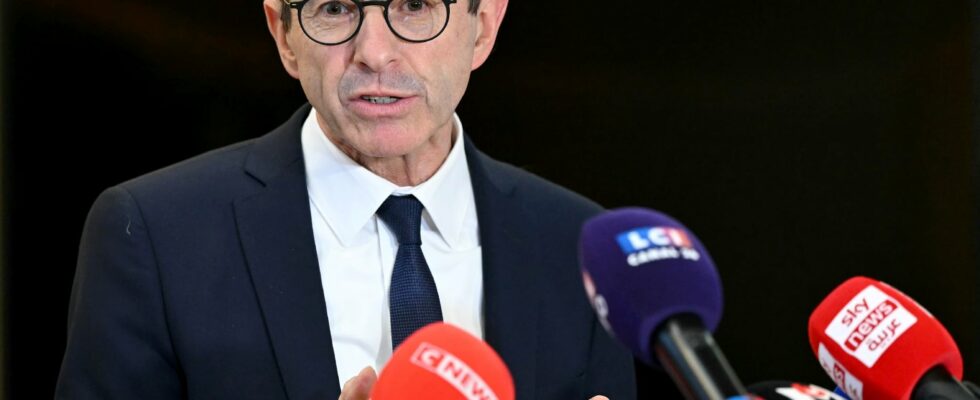Tensions with the Arion were already lively, that’s enough to feed them even more. Two days after the deadly knife attack in Mulhouse in Haut-Rhin, Paris has already mentioned several retaliatory measures with regard to Algiers, while the main suspect is an Algerian in an irregular situation in France. This was relieved by the terrorism prevention services and was the subject of an obligation to leave French territory (OQTF).
Very quickly, Bruno Retailleau questioned the non -cooperation of Algeria. According to the Minister of the Interior, she would have “refused ten times” to resume on her territory Brahim A., 37, suspected of having killed a person and having seriously injured At least three municipal police officers on Saturday February 22. He was arrested and placed in pre -trial detention on Saturday. “Here is an individual who should have been accepted by Algeria. Algeria refused him ten times. On ten times, my services have revived the Algerian consulate without ever accepting someone who was Born in Algeria, “accused Bruno Retailleau, before pleading for” a balance of power “with Algiers.
This Monday, it was François Bayrou who pointed out these refusals: “The murderer of Mulhouse, he had been presented ten times to the Algerian authorities so that his country of origin accepts that we send him home. The ten times The answer was no.
Visas pressures
A little earlier, government spokesperson Sophie Primas had mentioned various retaliatory measures against Algeria. “We are not obliged to have such large visas,” she said on RTL, also suggesting “targeting a number of people who are important in relations (Franco-Algerian) and no longer give them visas “. These two measures will be “on the table” of an interministerial immigration control council scheduled for Wednesday, which will also concern “other countries with which there are return problems” for foreigners in the process of expulsion from the territory .
The attack on weekends is an opportunity for Bruno Retailleau, according to the Algerian press, to spread “its sickly hatred towards Algeria”. “After the attack on Mulhouse, Bruno Retailleau resumes his offensive against Algeria”, title Le Quotidien El Watanwhile the detention of the Franco-Algerian writer Boualem Sansal had helped to extend the diplomatic relations of the two countries. “This affair is, for him, blessed bread and serves him, again, as a pretext to continue his offensive, nourished by extreme right ideas, against Algeria,” continues the newspaper. “To attract the electorate of the right and the far right, there is no better role and more comfortable posture,” also denounces the Algerian online newspaper Tsa.
Hardening of the law on “security retention”
Macronist deputy David Amiel (Renaissance) estimated on Franceinfo that “the absolute short -term priority” was to “question the 2007 agreement which provides that Algerian dignitaries can go to France without visa”, in order to “Press the regime” by targeting “the Algerian nomenklatura, not ordinary citizens”. The vice-president of RN Sébastien Chenu, for his part, judged on BFMTV and RMC that “the number of visas is excessively significant” and that “could go as far as there is no visa “.
Sophie Primas and the far-right party have also pleaded everyone for a hardening of the law on “security retention”, still in connection with the Mulhouse attack, the suspect of which had recently served a prison sentence Terrorism, shortly after the terrorist attack on October 7, 2023 in Israel. In this context, he had been the subject of an expertise “which had detected a schizophrenic profile”, before being placed in an administrative detention center, then assigned under house arrest with a daily obligation to point to the police station, specifies the newspaper Humanitywhich also notes that the case raises a certain number of legitimate questions on monitoring this type of profile, condemned and unstable psychologically, far beyond the question of OQTF.
“We must think about changing the law,” said the government spokesperson, while recalling that the last attempts in this sense were “each time taken away by the Constitutional Council”. “Security retention is a debate that must be opened,” said Sébastien Chenu, offering to “develop” the criteria to target more “people who have proven danger potentials (or) who are possible repeat offenders “.
